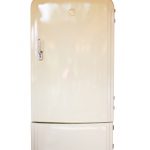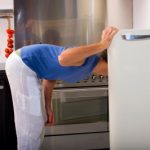Night Eating

Late-night snackers or overeaters might be suffering from a genetic defect that causes them to experience hunger, according to scientists at the Salk Institute for Biological Studies. A specific pair of genes, PER1 and PER2, normally keep a person’s eating schedule in sync with their sleeping and waking cycle, or circadian rythym. Yet, when mutated, …
Read More

Whether you like vegging out with snacks in front of the television at night or raiding the refrigerator at 2 a.m., don’t assume your behavior is benign, say researchers from the University of Pennsylvania. A new study suggests that late-night snacking could indicate night eating syndrome, a condition that is linked to mental health problems …
Read More

We’ve all heard that nighttime snacking isn’t good for us – it slows down digestion, can disrupt our sleep and add extra pounds – but why is it so hard to stop? Like any other habit, learning to stop eating in the evenings takes practice and perhaps a change of mindset. Use the following strategies …
Read More

Being sleep-deprived can make you ravenous, according to a new study from the University of Pennsylvania. Researchers found that people who are up late at night tend to spend more time in the kitchen and are more likely to gain weight than people with good sleep patterns. The study’s findings add to the growing body …
Read More

In accordance with the idea that you shouldn’t eat dinner past 7 p.m. if you don’t want to gain weight, a new study suggests that night snacking can make you put on more fat than nibbling during the day. According to emerging research, when the body’s normal sleep-wake cycle is disrupted by requiring the metabolism …
Read More

Night eating syndrome (NES) is a complex emotional, physical and psychological condition that is characterized by disruptions in eating and sleeping habits. NES can often be linked to problems with depression or other mental health disorders, so it’s best to speak with a doctor before self-diagnosing or attempting to start a treatment program. Eat regular …
Read More
 Eating Disorder Self Test. Take the EAT-26 self test to see if you might have eating disorder symptoms that might require professional evaluation. All answers are confidential.
Eating Disorder Self Test. Take the EAT-26 self test to see if you might have eating disorder symptoms that might require professional evaluation. All answers are confidential.
Find a Treatment Facility Near You
Click on a state below to find eating disorder treatment options that could be right for you.






 Eating Disorder Self Test. Take the EAT-26 self test to see if you might have eating disorder symptoms that might require professional evaluation. All answers are confidential.
Eating Disorder Self Test. Take the EAT-26 self test to see if you might have eating disorder symptoms that might require professional evaluation. All answers are confidential.